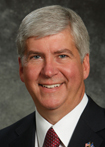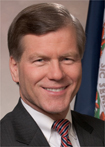'Without Any Warning, the Rules Have Changed'
New York Times Pundit: Reckless Obama NLRB 'Paralyzing' Economy (Source: September 2011 NRTWC Newsletter) For years, New York Times commentator Joe Nocera has been one of the most relentless champions of government regulation of business and "stimulus" spending in the American media. When even Mr. Nocera starts agreeing with critics of a presidential administration that it has gone "too far" in interfering with the decision-making of businesses and their employees, that administration clearly has a serious problem. Therefore, Mr. Nocera's August 23 Times column about the ongoing effort by Acting National Labor Relations Board (NLRB) General Counsel Lafe Solomon to dictate where businesses may or may not expand should have set off alarm bells at the White House. Mr. Solomon's immediate target is Boeing and its employees in Right to Work South Carolina. In April, he filed a complaint against the company, America's biggest exporter of manufactured products, for initiating a new 787 Dreamliner assembly line in North Charleston. As Mr. Nocera observed in his column bemoaning this Solomon power grab, "Boeing's aircraft assembly has long been done by its unionized work force in Puget Sound, Wash." Indeed, seven Dreaminers will still be assembled each month in Puget Sound. "The South Carolina facility," Mr. Nocera explained, "is a hedge against the possibility" that International Association of Machinists (IAM) union kingpins will order unionized employees in Puget Sound out on strike, and thus "shut down production of the Dreamliner." A 'Mind-Boggling Stretch' To Characterize Boeing's Strategy as 'Retaliation'




